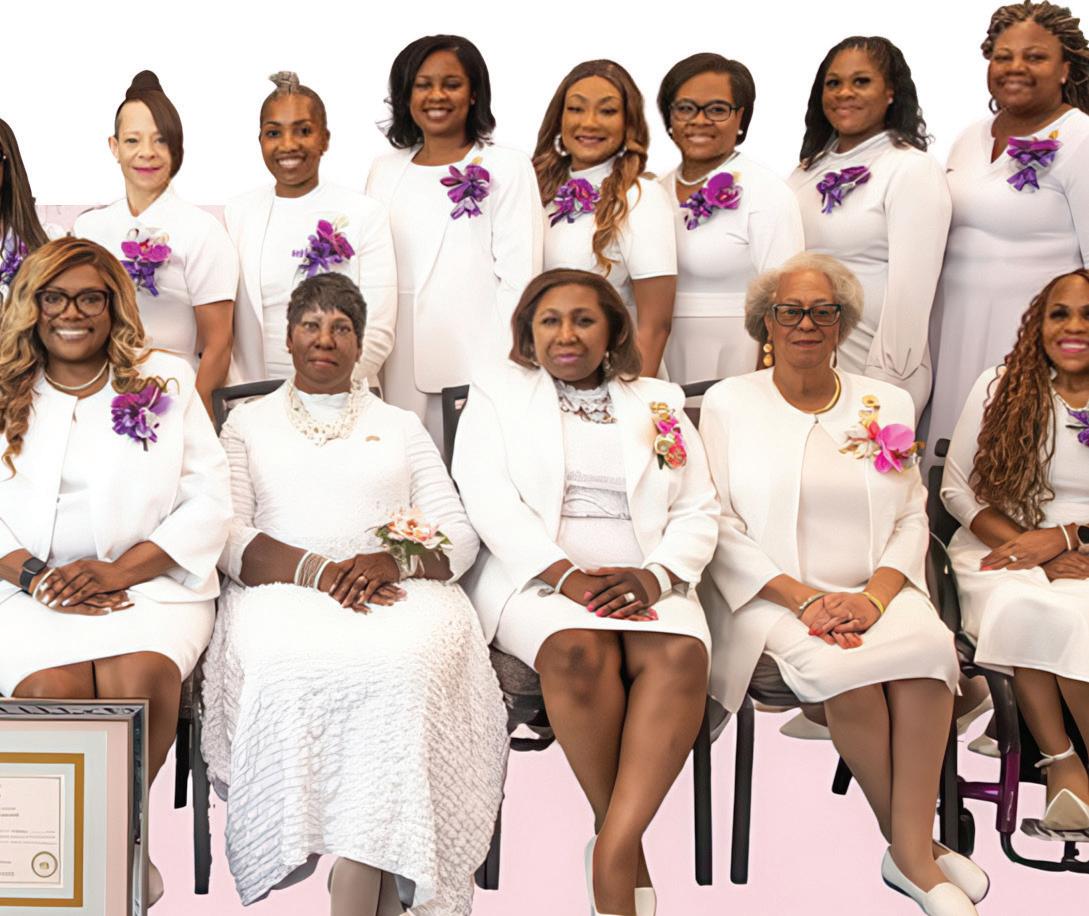
African-American News&Issues


African-American News&Issues




By: Roy Douglas Malonson
e Voting Rights Act of 1965 was supposed to be the promise that America would never go backward — that the sacri ces made in Selma, Montgomery, and Birmingham actually meant something. It was the law that turned tears and blood into ballots. But sixty years later, that promise is hanging by a thread, and the U.S. Supreme Court looks ready to cut it. At the center of the storm is a case out of Louisiana. On paper, it’s about how congressional districts are

drawn. In reality, it’s about whether Black voters will still have a fair voice in their own government. For generations, the Voting Rights Act protected that voice. It forced states with racist histories to stop rigging the system through redistricting and voter suppression. But if the Court rules the wrong way, the last piece of that protection — Section 2 — could be wiped out. Voters on pg. 3


WHERE

By: Jamal Carter
Houston is a city that loves to brag about growth. New tech campuses are popping up, warehouses are expanding across the Beltway, and construction cranes seem to touch the sky everywhere you look. But if you walk through places like Acres Homes, Sunnyside, South Park or the Almeda corridor, you hear a very di erent story — one where young Black Houstonians are still struggling to nd steady work in a city that claims to be full of opportunity. e truth is in the numbers. Teen unemployment across the Houston region sits above 14%, but for Black teens it’s even higher. For Black adults, unemployment has been reported at nearly double the rate of white workers. And in neighborhoods with long histories of underinvestment, it o en feels like the prosperity happen-
Jobs on pg. 5
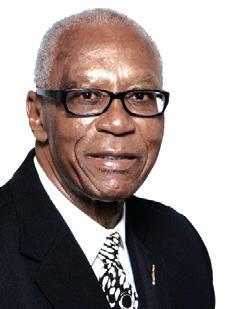
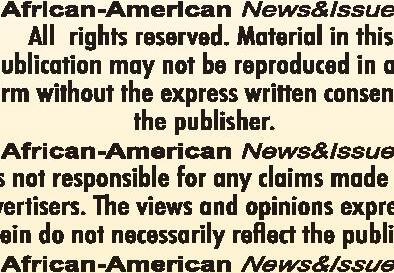



TO aframnews1982@gmail.com 713-682-1892

PO BOX 41820 Houston, TX 77241



America, the Bible speaks of “perilous times” when it will become too di cult for Christian service because of societal sinfulness. But “this know also, that in the last days perilous times shall come. For men shall become lovers of their ownselves, covetous, boasters, proud, blasphemers, disobedient to parents, unthankful, unholy, without natural a ection, trucebreakers, false accusers, incontinent, thankful, unholy, without natural a ection, trucebreakers, false accusers, incontinent, erce, despisers of those who are good, traitors, heady, highminded, lovers of pleasures more than lovers of God; having a form of godliness, but denying the power thereof; from such turn away.” (2 Timithy 3: 1-5).
Glory to God in the highest, peace on earth, and good will towards all individuals. America, we are in a sense of leadership urgency. President Trump and his MAGA-Cult Administration are dismantling the basic foundational governing principles and constitutional tenets of multi-cultural democracy in favor of White Privilege Autocracy, and we are living in dangerous ungodly times. Fear is a powerful motivator. Now is the time to respect God and avoid evil. King David knew that God would be our help


for today and our hope for tomorrow. erefore, he wrote: “ e Lord is my light and my salvation; whom shall, I fear? e Lord is the strength of my life; of whom shall I be afraid?” (Psalm 27: 1). Fear casts a dark shadow and imprisons individuals to sin. anks to Jesus Christ, the Righteous One, individuals can overcome fear simply by trusting in God, knowing full well that the earth belongs to the Lord, and the fullness thereof, not President Trump and his MAGA-Cult Followers. More importantly, “and as it is appointed unto men once to die, but a er this the judgment:” (Hebrews 9: 27a). So, don’t worry about those who are wrongdoers. Spiritual judgment is not a popular theme in American society, especially in politics. But, we all know, God hates sin, and it is His appointed time when He shall execute righteous judgment upon evildoers. Sadly, living in the presence of God is not easy in 2025, because it is not the desire of (77) million Americans. America, this we know: “evil men and seducers shall wax worse and worse, deceiving, and being deceived.” (2 Timothy 3: 13). For this reason, it is unrealistic to anticipate or expect that ine ective leaders will initiate positive reforms or change on their own accord. Hence, le alone they will become worse. In 2025, America is besieged by false MAGA-Cult political leadership socio-economic doctrines. However, we must not allow American multicultural democracy to become spiritually distorted from this eternal Truth:

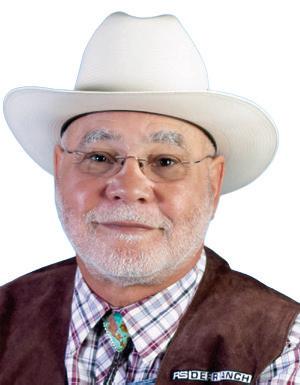
We Must Understand
Roy Douglas Malonson, Publisher
As the 2026 midterm elections draw near, the Trump administration is pushing a series of aggressive changes to America’s voting system, sparking deep concern within civil-rights groups and election o cials nationwide. While the public hears political slogans about “election integrity,” behind the scenes the federal government is pressuring states, revising rules, and demanding unprecedented access to voter information — moves that could reshape how millions of Americans vote.
registration requirements, enforce stricter proof-ofcitizenship rules, and push states toward paper-only ballots. e president has repeatedly said he wants mail-in voting drastically reduced or eliminated. If those changes take hold before 2026, communities that rely on absentee ballots — including elderly voters, people with disabilities, working-class families, and areas with limited polling locations — could face signi cant obstacles.
ID challenges in numerous states. Any federal action that reduces early voting, restricts mail-in balloting, or changes registration potential to hit hears political slogans about

Over the past year, the administration has sought detailed voter-roll data from states across the country, including sensitive personal information normally protected under state law. Several election administrators have publicly stated that the requests go beyond anything they’ve seen before and could open the door to voter purges or increased scrutiny of naturalized citizens and minority voters.
At the same time, the White House has ordered federal agencies to tighten







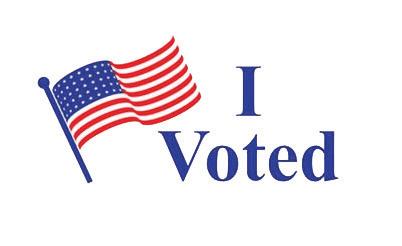
ese e orts arrive at a time when Black voters already deal with long lines, fewer polling locations, transportation barriers, and ID challenges in numerous states. Any federal action that reduces early voting, restricts mail-in balloting, or changes registration rules has the potential to hit Black communities hardest. Legal scholars also warn that shi ing major election authority to the executive branch threatens the long-standing balance in which states run their own elections. If Washington begins centralizing control, it could rewrite rules that have protected voter access for decades.
e ght ahead is clear: as 2026 approaches, communities must stay alert, stay informed, and stay organized. Voting is power — and any attempt to weaken that power should be met with full attention and full resistance.
If that happens, states could redraw maps any way they want, without fear of being challenged for discrimination. Majority-Black districts could disappear overnight. e power that took decades to build could vanish in one ruling. And the people who’ve fought hardest to be heard would once again be silenced — this time under the false promise of “colorblindness.”
Let’s be real: pretending not to see race in a country built on racial inequality doesn’t make anything fair. It just hides the discrimination better. e same forces that once used literacy tests and poll taxes to keep us out of the voting booth have simply changed their tactics. Today, they use courtrooms and clever legal arguments to do what violence once did — keep power in the same hands.
If you want to see what’s really at stake, look at the South. In states like Louisiana, Georgia, Alabama, and Texas, Black voters make up huge portions of the population. But when districts are redrawn to dilute that power, it means fewer Black representatives, fewer voices ghting for our schools, our neighborhoods, and our futures. It means policies that favor the few instead of the many. is ght isn’t just about voting — it’s about survival. Political power decides everything from where new hospitals are built to how police departments are funded. If our votes don’t count, neither do our needs. And history has shown that when our political voice weakens, our communities pay the price in every way possible.
What makes this moment so dangerous is how quietly it’s happening. ere are no dogs or re hoses this time. No mobs blocking polling places. Just judges in robes and lawyers speaking in polished legal terms that mask the same old goal — to roll back Black progress and make it seem like justice. e Voting Rights Act wasn’t a handout. It was a victory earned through courage and pain. It was a promise to every generation a er that we would never again be shut out of America’s democracy. Watching it be dismantled in 2025 feels like watching history run backward in slow motion. is isn’t a political issue — it’s a moral one. e question isn’t whether America will keep the Voting Rights Act alive. e question is whether Black America will let them bury it without a ght. Because if we don’t raise our voices now, there may come a time when our votes no longer matter — and by then, it’ll be too late.
e truth is simple: you can’t have democracy without equality, and you can’t have equality without the right to vote. If the Court takes that away, it won’t just be a loss for Black voters — it’ll be a loss for the entire country.
America promised freedom and justice for all. But that promise means nothing if it’s only true for some.
By: Kymesha Atwood
Lone Star CollegeMontgomery is turning up the volume on student voices with the o cial launch of Maverick Minds, a student-led podcast powered by a $50,000 grant from Comcast. e podcast, produced in the newly opened Audio-Visual Lab and marketing suite studios, is already making waves across campus, and it’s all thanks to the passion and creativity of the LSC-M community and its student hosts. We sat down with two of the podcast’s inspiring voices, Nasser ‘Nas’ Johnson and Jean Carlo, to hear how Maverick Minds is reshaping the campus conversation. Nasser ‘Nas’ Johnson, Creative Director and Host of Maverick Minds, is a second-year Art major at LSC-Montgomery. As a student host, he brings a passion for dialogue and communitybuilding to the mic.
“Maverick Minds is a state of mind,” Johnson said. “It’s where like minds can be heard, where voices are upli ed to better our community and our college. is is a platform for students, by students, to connect with faculty, sta , and the broader community. We want to foster healthy communication and understanding to address the issues we all
face. In today’s world, we need to truly listen to each other so we can come together and help one another. It all starts with a conversation.”
Jean Carlo, a rst-year marketing major with a air for storytelling, says the podcast is a safe place for students by students as well. is is a place where they can listen to di erent student-life topics that
will make the college experience easier and better.
Each week, Maverick Minds delivers 30–45-minute episodes featuring:
• Discussions about available campus and community resources
• Stories of students, faculty, and sta to foster






1964- Malcom X publicly announced his departure from the Nation of Islam.
1965- Dr. Martin Luther King Jr. led a group of protestors from Brown Chapel to Edmund Pettus Bridge in Selma, Alabama.
1913- Harriet Tubman died in Auburn, New York. March 10th is observed as Harriet Tubman day in the United States, to remember the contributions she made.
1959- A Raisin in the Sun, the rst Broadway play produced by a Black woman, Lorraine Hansberry, debuted at the Ethel Barrymore eatre.

1917- e rst Black Girl Scouts troop was formed in the New York area.
1835- e Missouri General Assembly passed a law that required free Black people had to apply for a license to stay in the state of Missouri.
Louisville



Houston residents will soon find their late-night transportation options more limited after the City Council approved a new curfew on scooter rentals. The policy, which applies to both electric and foot-powered scooters, bars their use during overnight hours in response to growing safety concerns on city streets. Officials say the restriction aims to reduce crashes and injuries that have occurred after dark, when visibility is lower and intoxicated riding is more common. While some riders may see the change as an inconvenience, city leaders argue the curfew is a necessary step to improve public safety and better regulate shared mobility in Houston.
The Travis County Commissioners Court on Tuesday sanctioned the use of eminent domain to acquire a closed landfill near U.S. Highway 290 amid ongoing environmental concerns.
Plans for San Antonio and Austin representatives disrupted by court’s reversal of Texas redistricting
Conroe has approved a $5.6 million acquisition of the former Dailey Oil Tool property on Plantation Drive, which will become the site of its upcoming city hall.
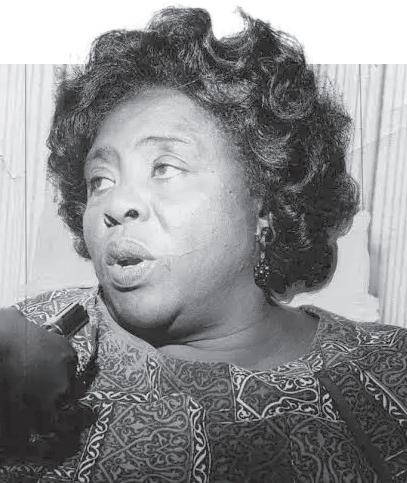
After a 7-to-1 vote by its board, the Fort Worth ISD is moving forward with an appeal of the state’s intervention.
Fannie Lou Hamer conveyed this idea when she said, “You can pray until you faint, but unless you get up and do something, God isn’t going to hand it to you.” Her point was that faith alone is not enough—real progress requires concrete action. She also declared, “Nobody’s free until everybody’s free,” underscoring how deeply connected the fight for liberation is and affirming that freedom cannot be achieved by one group unless all people, across race and gender, work together.
ing downtown never makes it past 610.
Young people describe the same obstacles again and again: jobs that require experience they’ve never been given a chance to gain, employers who skip over applicants from certain ZIP codes, and training programs that are long bus rides away or too expensive to nish. Even when companies say they can’t nd enough workers, young Black job-seekers in Houston tell a di erent story — they’re applying, showing up, and still getting passed over.
But there’s another truth, one that doesn’t show up in the statistics: these young people aren’t lacking talent or motivation. ey’re lacking access. And access can be built.
For anyone trying to break into Houston’s job market right now, the path o en starts with short-term training or certi cation. Fields like healthcare support, logistics, solar installation, and IT help desk work continue to grow across the city, and many programs o er nancial assistance if you ask the right questions. Community centers, churches, and local nonpro ts can also serve as unexpected connectors to employers who are actually willing to hire locally. It also helps to speak up about your goals. When a supervisor or mentor knows you’re hungry for growth, they’re far more likely to point you toward opportunities you didn’t know existed. Houston may not always make the playing eld fair, but there are doors that can open if you keep pushing.
Young Black Houstonians are ready to work, ready to learn, and ready to lead. e city just needs to meet them halfway. Jobs Cont.
By: TSU Media
Texas Southern University has named longtime policy strategist and research leader
Calvin Johnson, Ph.D., as the new Dean of the Barbara Jordan-Mickey Leland School of Public A airs following a nationwide search.
Johnson joins Texas Southern from the U.S. Department of Housing and Urban Development (HUD) O ce of Policy Development and Research where he served 12 years as Deputy Assistant Secretary for Research, Evaluation, and Monitoring. In his capacity as Deputy Assistant Secretary, he served as one of the principal advisors to HUD leadership on research, demonstration, and evaluation activities. He oversaw a broad evaluation portfolio, including projects exploring the impact of housing on non-housing outcomes, economic selfsu ciency, health and wellness, and educational achievement. His oversight included an active research portfolio that totaled more than $90 million.
“Dr. Johnson’s combination of experience in academia, research, policy, and as a practitioner make him uniquely quali ed to lead the Barbara Jordan-Mickey Leland School of Public A airs as it continues to meet the needs of an evolving public a airs ecosystem,” said Provost and Senior Vice President for Academic A airs Dr. Carl B. Goodman. “He is a forward-thinking
leader who has served in spaces that I know will bene t our students, faculty and sta . I am pleased to welcome him to Texas Southern, and I look forward to the work we will do together to elevate our public a airs programming.” He brings over 30 years of leadership in research and policy development. Prior to joining HUD, Dr. Johnson served dual roles as the Associate Director of the O ce of Research and Evaluation and the Performance Improvement O cer at the Court Services and O ender Supervision Agency for the District of Columbia (CSOSA). While there, he was principal advisor to the Director and technical and program advisor to the Criminal Justice Coordinating Council’s federal stakeholders, which included the CJCC U.S. Parole Commission, Superior Court for the District of Columbia, U.S. Attorney for the District of Columbia, and the Pretrial Services Agency for the District of Columbia.
“I am both honored and thrilled to be appointed as the Dean of the Barbara Jordan-Mickey Leland School of Public A airs (SOPA),” said Dr. Johnson.
“I anticipate collaborating with our dedicated faculty, sta , students, alumni, and community stakeholders to advance programs that are intellectually stimulating, closely aligned with the high-demand skills sought in today’s workforce and rooted




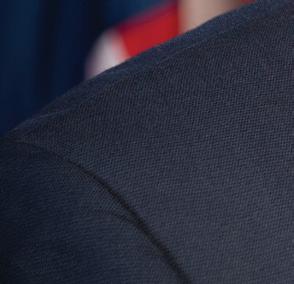

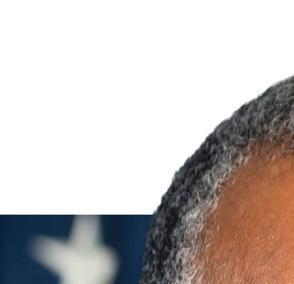


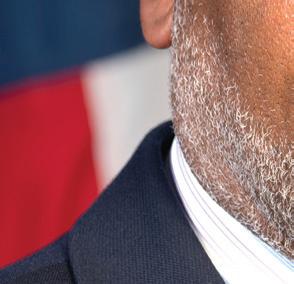


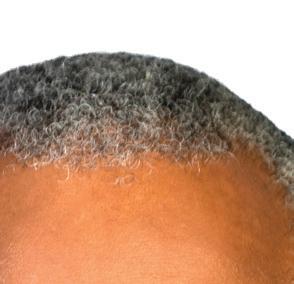
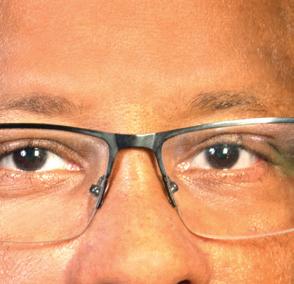




in the principle of service to others as a cornerstone of e ective leadership.
Dr. Johnson has also served in research, evaluation, and policy positions at the University of Pennsylvania, e Urban Institute, and with the Executive O ce of the Mayor of the District of Columbia. His expertise has earned national recognition. In 2020, he was elected as a Fellow for the congressionally chartered National Academy of Public Administration.
Additionally, he serves as a Commissioner on the United States Commission on the Social Status of Black Men and Boys.
“Our team at SOPA bears an awesome responsibility to rise to the challenges articulated by Barbara Jordan: ‘ e imperative is to


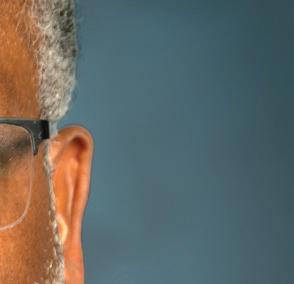
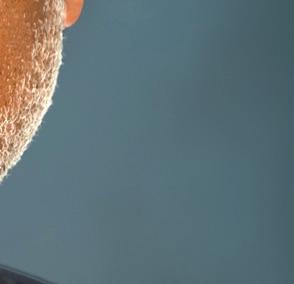
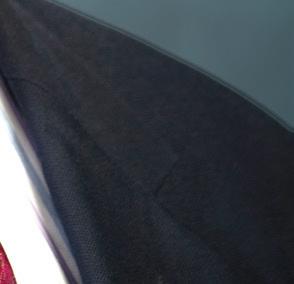
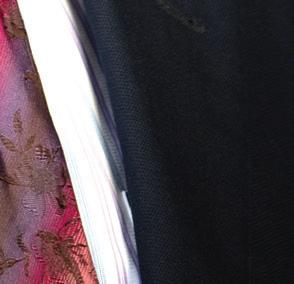

de ne what is right and to do it,’ and by Mickey Leland: ‘We’ve got to help resolve the problems…su ering people need our help.’ I am excited to forge partnerships both within and beyond SOPA that will cultivate academic programming and service opportunities, honoring the enduring legacy of our school’s namesakes.”
Dr. Johnson received a B.A. degree in Sociology from Eastern Washington University. He also earned his master’s degree in Sociology/ Research Methods from Temple University and a Ph.D. in Criminology and Criminal Justice from the University of Maryland-College Park. He assumed the role of Dean e ective November 3.
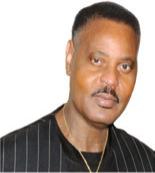


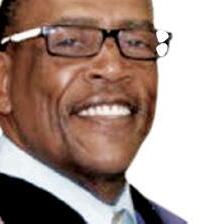







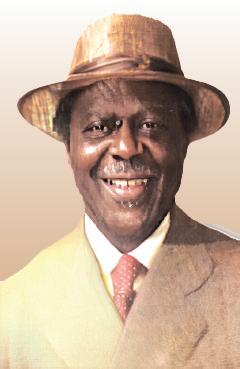




















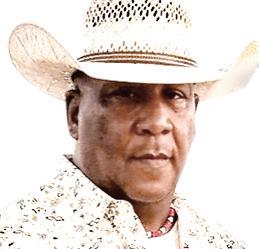










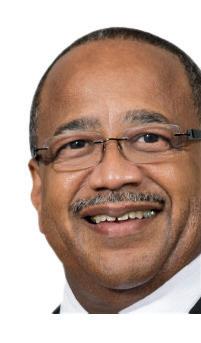
























By: Valerie Baston
e Arlington Crown Jewels Chapter of Top Ladies of Distinction, Inc. embodies the national organization’s long-standing mission of serving youth and upli ing communities through leadership, advocacy, and volunteerism. As part of TLOD’s legacy, the chapter focuses on empowering young people—especially through the Top Teens of America program— while promoting educational excellence, personal development, and civic responsibility. Members work
collectively to strengthen the social fabric of the community and model the values of service, dignity, and distinction.
In addition to youth development, the Arlington Crown Jewels Chapter supports TLOD’s broader initiatives, including community beauti cation, senior citizen outreach, and partnerships with local organizations. rough service projects, mentoring, and collaborative events, the chapter contributes to creating a positive, sustainable impact in
the Arlington region.
eir e orts re ect the national organization’s commitment to improving the quality of life for all people while celebrating sisterhood, professionalism, and compassionate leadership.
Top Ladies of Distinction, Incorporated was founded in Tyler, Texas in 1964 by eight women as a nonpro t educational and humanitarian organization. ere are ve major thrusts, or programs of service—Status of Women, Community Beauti cation, Senior Citizens, Community
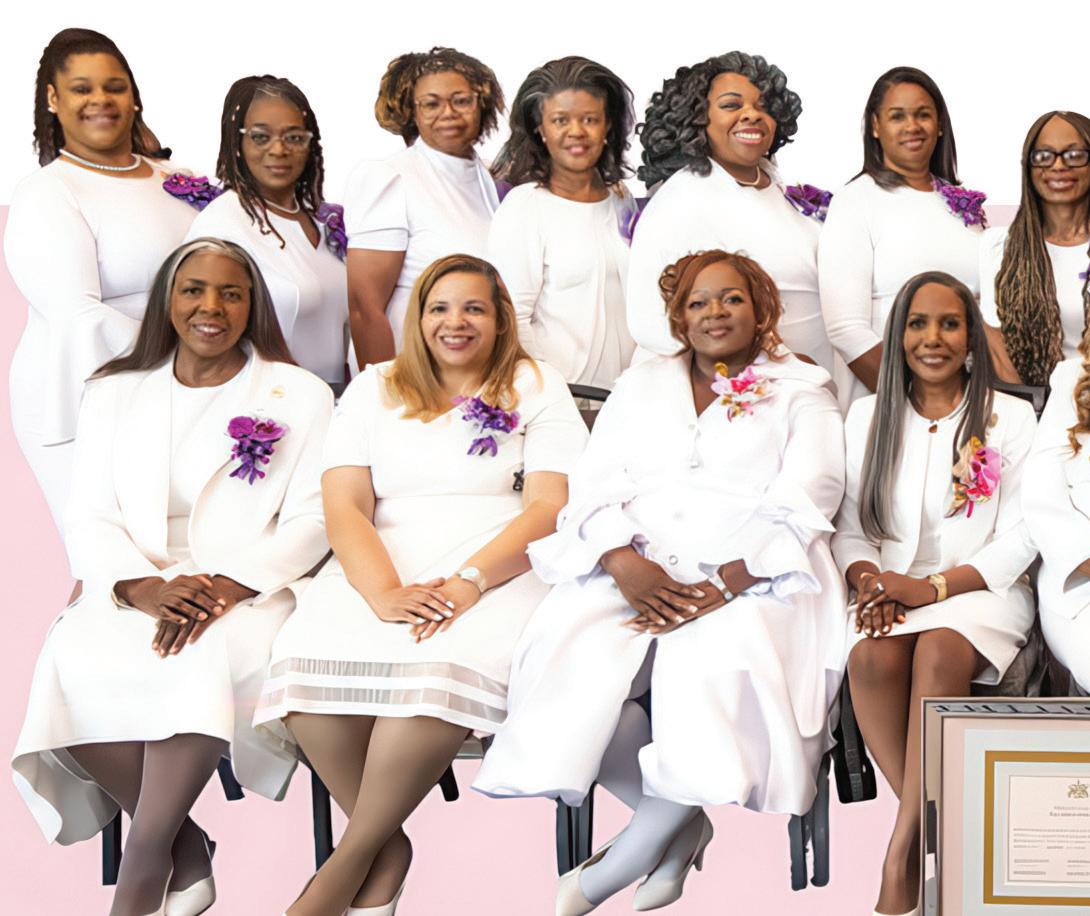
Partnerships, and Top Teens of America; however, the number one thrust is Top Teens of America. Arlington Crown Jewels is the rst chapter in the 60-year history of Top Ladies of Distinction, Incorporated to be chartered in Arlington, Texas, and the only existing chapter in Tarrant County. Under the leadership of National President and CEO Eddie Lee Marsh and National Area One Director Rhonda Harris, Chapter Organizer LaShica Walton, Esquire, along with 18 ladies, chartered the Arlington



Crown Jewels Chapter on September 20, 2025, at the Westin Hotel in Southlake, Texas. is chapter is #2110 of the national organization.
e members are: LaShica Walton –Chapter Organizer; and 18 Charter Members: Trista Allen, eresa Austin, Valerie Baston, Leah Benson, Andrea Boone, Melonie Carnegia, Tarnecha Cook, A. Denise Cummings, Nichelle Dawkins, Pearl Garden, LaSandra Gillard, Deborah Jackson, Melissa Johnson, Cory Moody
Rice, Kebra Moore, Carmen Moss, Kim Rich-Rice, and Debra White. is chapter is comprised of attorneys, a sitting city council member, educators, nurses, a CEO, an author, a publisher, court personnel, an underwriter, and accountants. e chapter serves Tarrant County and the surrounding cities of Arlington, Mans eld, Grand Prairie, Kennedale, and Fort Worth.
AA Johnson, Cory Moody chartered the Arlington
